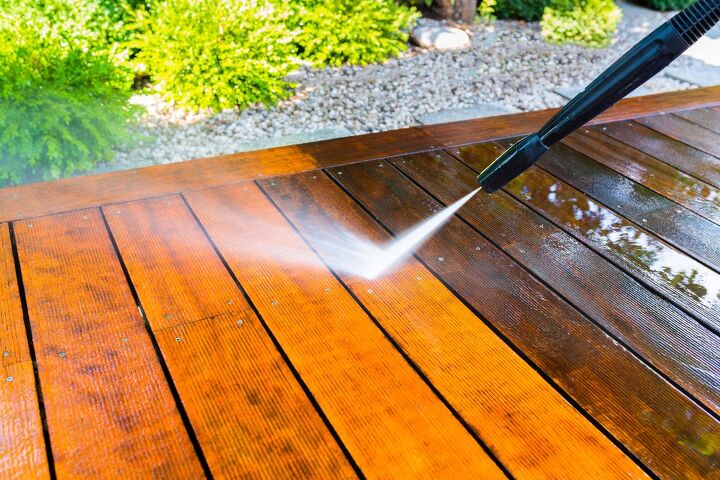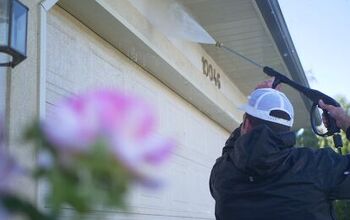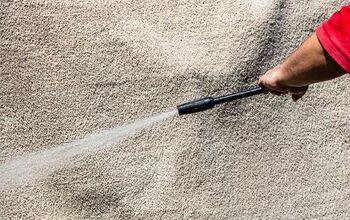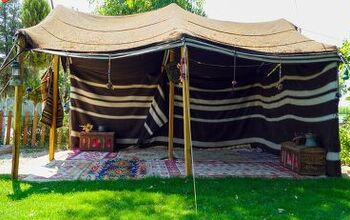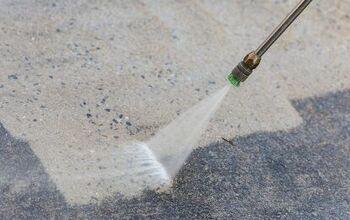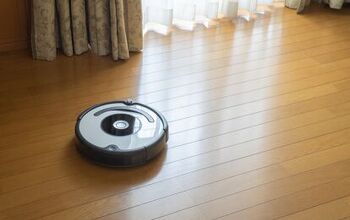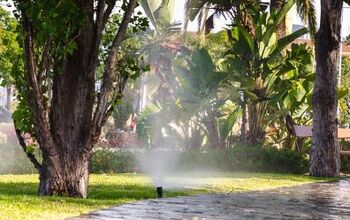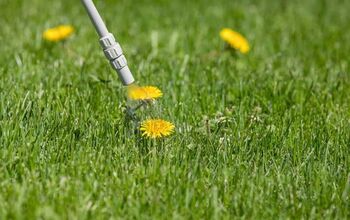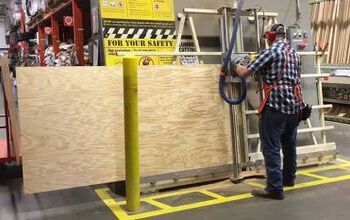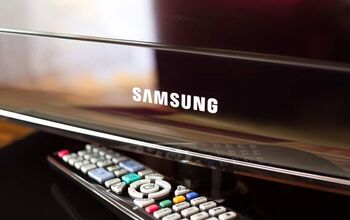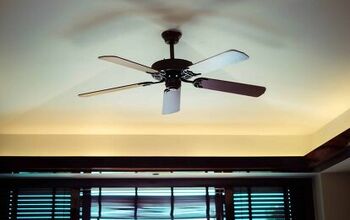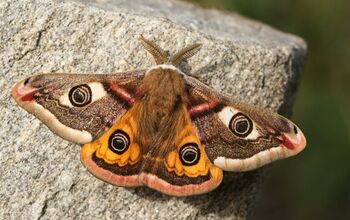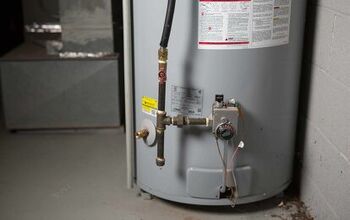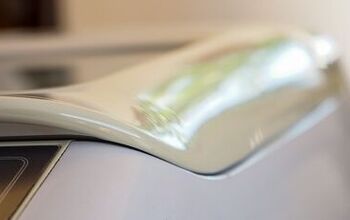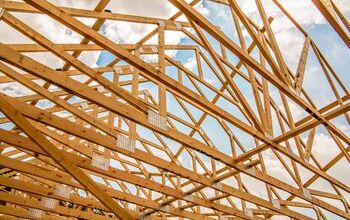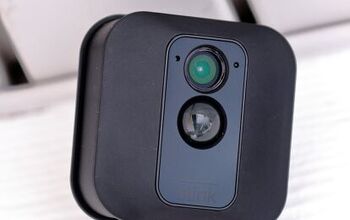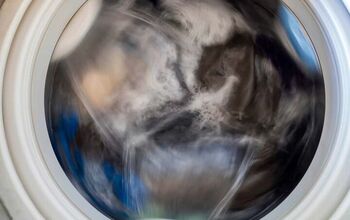Can You Power Wash In Winter? (Find Out Now!)

Power washing is an effective way to get surfaces sparkling clean in hardly any time. But is there an ideal time to do it? It makes the most sense to power wash when the weather is nice. But what about a mild winter day—can you power wash then?
Depending on where you live, it’s possible to power wash during some of the winter months. It’s recommended to power wash in temperatures above 35°F. If the temperature, including wind chill, is below freezing, you should not power wash. Otherwise, the water may freeze in the power washer hose or on surrounding surfaces as it sprays.
Do You Need Power Washing Services?
Get free, zero-commitment quotes from pro contractors near you.

Power Wash vs. Pressure Wash
You may have heard these terms used interchangeably. Power washing and pressure washing are essentially the same concept with one difference: the use of heat. A power washer uses heated water while a pressure washer does not.
This is good news for winter power washing! It seems a lot more comfortable to get accidentally sprayed with heated water while power washing during cold weather.
However, you do want to be aware of how the heated water affects the surfaces you’re cleaning. Power washing is a method best left for cement, concrete, or other materials that are less susceptible to heat damage. Determine beforehand whether or not it’s safe to use a power washer on a specific surface.
Consider the Weather
When power washing in the winter, the most important thing to consider is the weather. It can be too cold to power wash, and the wind plays a big part in the overall temperature.
Above Freezing
The freezing point of water is 32°F. Even though the water in a power washer is heated, it won’t take long to freeze on surfaces. This is why it’s best to power wash in temperatures above 35°F.
Even if the temperature is above freezing when you power wash, chances are it will drop in the evening. Any surfaces that are still wet will freeze. Homeowners are advised to put down rock salt or ice melt if power washing in cold weather.
Not only does power washing in freezing temperature create icy surfaces, but it can harm the machine itself. The water could freeze inside the hose, causing the power washer to malfunction.
Wind Chill Factor
When power washing in winter, you must factor the wind chill into the overall temperature. It may be 35°F, but the wind could bring the temperature below freezing. Plus, wind carries water in directions you likely don’t want it to go.
Time of Day
Winter temperatures can fluctuate greatly throughout the day. The day may start out at 22°F, but it could warm up to 45°F by the time the sun is highest in the sky. If you want to power wash during the winter, pick the warmest part of the day, provided it’s above 35°F.
Location Matters
Winter weather is vastly different depending on where you live. Your location ultimately determines whether or not you can power wash in the winter months.
During the months of December through March, temperatures in northern climates tend to be too cold for power washing. It’s possible to have a few mild days, but often, the weather doesn’t warm up enough to power wash safely.
Southern climates have more flexibility. Typically, these climates can power wash year-round because the weather hardly reaches extreme cold temperatures.
Power Washer Winter Maintenance
You know how your joints get stiff in the cold weather? Machines are also affected by the cold—power washers included. You must take certain precautions when using your power washer in the winter.
- Store them in a warm area. Power washers require certain temperatures during use. But they also require certain temperatures during storage. Power washers need to be stored in temperatures above 35°
- Drain the lines. You must ensure the power washer lines are completely drained before storage and use. Any leftover water can freeze inside the washer, causing the machine to break.
- Keep the engine lubricated. Machines start up more slowly in cold weather. (Remember your joints?) To help its performance, keep the engine lubricated, particularly the cylinders and carburetor.
- Check your washer fluids and chemicals. Some cleaning chemicals lose their viability in cold weather. Most cleaners require heat as part of their chemical reaction. So, depending on what you use, it may work slower in the cold—like everything else! Washer fluids need to be prepared right before use. Otherwise, they tend to thicken or freeze when stored in cold weather.
Best Time to Power Wash
It’s recommended to power wash your home at least once a year. As mentioned before, your location makes a big difference in when to power wash. Keep in mind, the warmer the better.
The ideal time to power wash in any climate is between March and November. The weather tends to be warmer more often—it certainly shouldn’t freeze in the middle of the summer! There’s little risk of harm to your machinery during these months no matter your location.
Related Questions
Can you power wash in the rain?
The amount of rainfall determines if power washing is a good idea. If it’s just a light sprinkle, it’s OK to power wash in the rain. However, a thunderstorm is a dangerous condition for power washing. In addition, heavy rain tends to wash off detergents. So, whatever you’re power washing may not get as clean if washed in the rain.
Can you power wash stucco?
Some materials hold up better with power washing than others. If the stucco on your house is new or in excellent condition, it’s safe to power wash it. Make sure to wash at a good distance, keeping the power washer below 1500 psi.
Do You Need Power Washing Services?
Get free, zero-commitment quotes from pro contractors near you.

Summary
Your location makes all the difference when determining whether or not you can power wash in winter. For safety purposes, you should only power wash when the temperature is above 35°F. You must account for the wind chill when calculating the temperature. If the temperature gets any colder, you risk creating dangerously icy surfaces.

Brigid Levi is a wife, mother, and freelance writer who enjoys a good DIY project and creating beautiful spaces within her home. From cleaning and organization hacks to home decor ideas, she loves helping people in their quest to turn a house into a home. Her hobbies include pretending to be Joanna Gaines while updating her home with her husband and performing in local theater productions.
More by Brigid Levi



